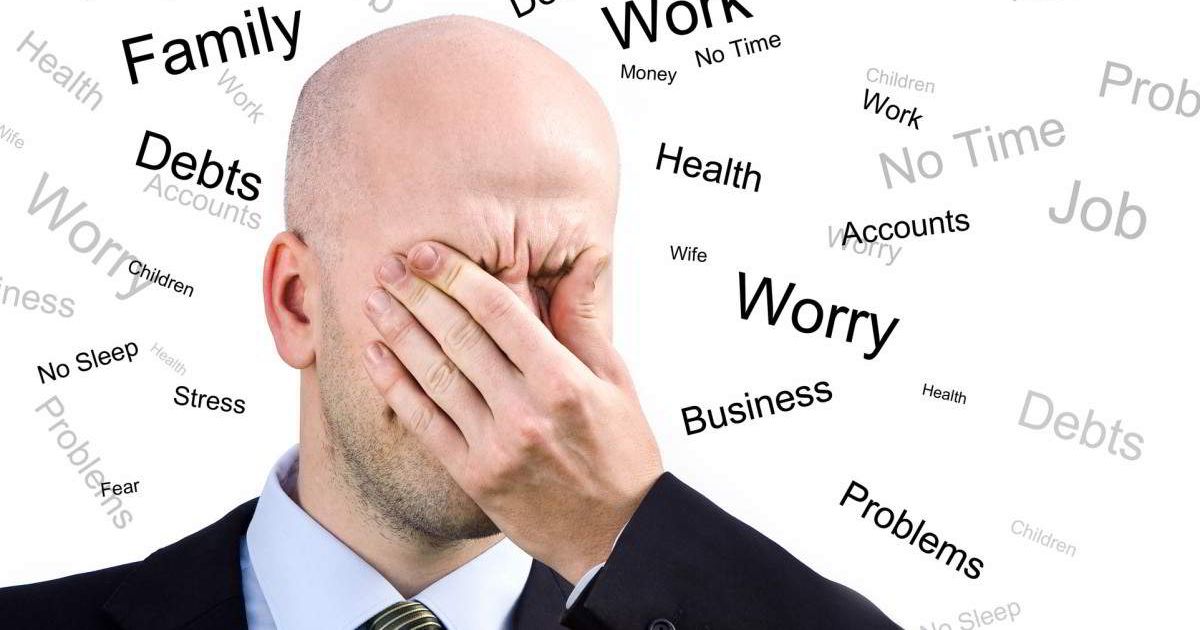Written by KL Spoorthy | Reviewed By John Victor | Updated On September 12, 2022

Listen to this article in Audio
Stress is a normal human reaction that all of us experience in our life. For a child, losing a new eraser can bring stress, exam stress for students, the stress in a marriage, and work for young adults. For aging adults, sudden changes, health concerns can cause stress. In addition to some everyday stressors, the current pandemic has forced people to accept changes brought by COVID lockdown restrictions and adjust to the 'new normal.
Stress is our body's response to environmental obstacles and the way we perceive them. Let's call environmental obstacles 'stressors.' Stressors can be life events ranging from daily traffic jams and issues with co-workers to bereavement, divorce, or losing a job and experiences associated with different situations.
Stress is not all that bad. Some stress responses can be positive and valuable. It's called "eustress" - the stress people experience before delivering a speech on stage. Eustress helps us to stay motivated and feel good once the stressful event is over. This does more good than harm. What can potentially harm people is "distress." Distress is negative stress that can bring about varied physical, emotional and mental changes in one's body.
Some physical changes are tightness in the chest, breathlessness, muscle aches, changes in sleeping and eating patterns (increase or decrease), increased blood pressure, constant headaches, dizziness, etc.
Emotional reactions to stress can be getting irritated and impatient, upset for trivial things, frustration feeling low, sensitivity, forgetfulness, issues with concentration, etc.
Since everyone is unique, different individuals experience stress differently, and their responses physically and emotionally can also vary.
Did you know that our body is designed to respond to stress?
Yes. The human body is fascinating. It has provided us with measures of last resort.
When someone experiences stress, our sense organs (eyes, ears, etc.) take that information to the brain. The brain perceives it as a danger and sends an alert signal to the hypothalamus. Hypothalamus acts as a command center and passes that alert to the rest of the body and prepares the body for a 'fight or flight mode. Cortisol, a stress hormone, is released. It enables sense organs to become sharper, and people start breathing more rapidly. All these changes in the body happen so quickly that people generally aren't even aware of them.
Once the dangerous situation ends, the body slowly reverts to normal functioning mode. The alert signal in the brain fades gradually. This mechanism enables our body to respond to stressful situations involuntarily. Every time an individual experiences stress, the body uses the above mechanism to cope.
But when an individual experiences stress over some time or the presence of multiple stressors, this mechanism gets overburdened. Acute stress can bring about significant physiological changes in one's life, leading to heart problems, depression, anxiety, and many more conditions.
We can help ourselves.
We might have faced so many challenging situations in our lives and successfully navigated through some of them. With little insight, most of the stressors can be nipped in the bud.
1. Recognize when stress is turning into affecting your physical and mental health.
2. Review your lifestyle. Including Exercise, walks, pleasurable activities can be of significant physiological and mental help.
3. Maintain supportive relationships. Be in touch with friends and family. Sometimes, a different perspective on a problem will be sufficient to reduce your stress.
4. Eat healthily and sleep well.
5. Go easy on yourself. It's okay to pause and take a break.
Being stressed at some points in life is a shared experience. Some get resolved in a short duration while others bother for a long time. Understand that it's alright not to find quick solutions. Allow yourself some time, work on it. At times, when people are under tremendous stress, finding insight might be more challenging. In that case, consider taking professional help.

Corporate-Work-Stress
Creativity Not Encouraged By Society | Psychologist Explains
Corporate-Work-Stress
The Advent of Online Counseling For Mental Health.jpg)
Corporate-Work-Stress
Why are Women expected to be ‘Modest’ and ‘Chaste’?
Corporate-Work-Stress
ALL ABOUT GRIT